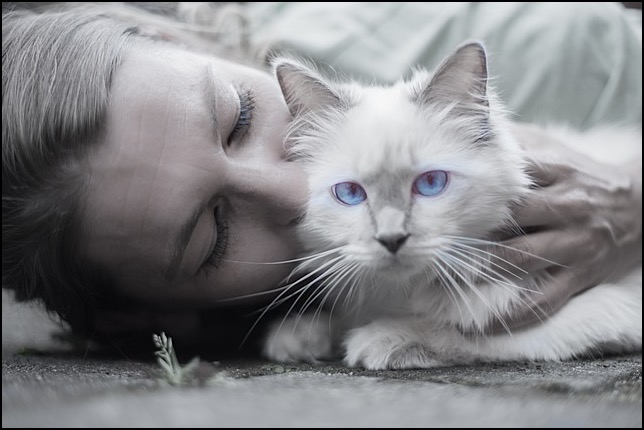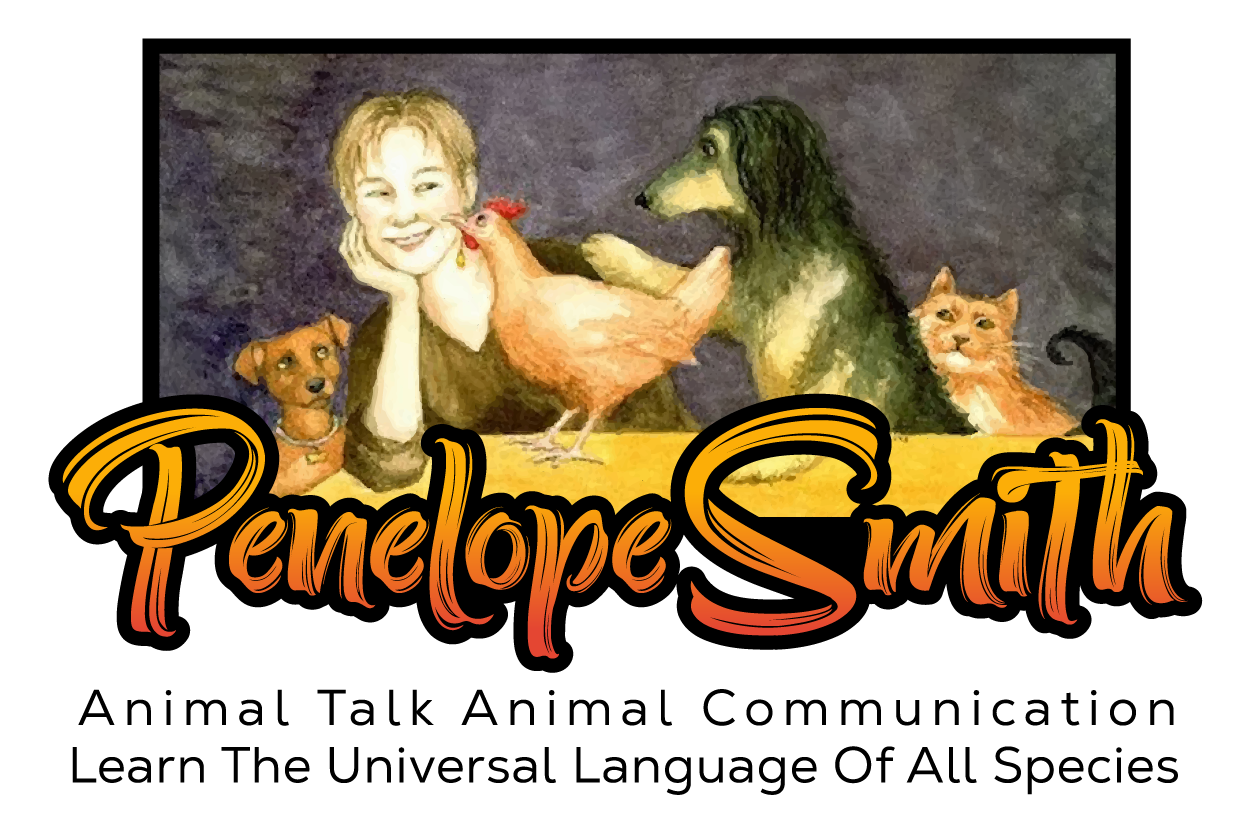Getting to the Root of Problems
Successful animal communication consultations are characterized by positive attitude and behavior changes in animals and their people about situations that have been brought up to handle. Getting to the root of problems through telepathic communication and understanding of the animal’s and human’s viewpoints rather than just giving advice based on past experience or others’ conclusions about animal behavior is the key. Here are a few examples.
An Entertaining Game
A woman called me for help because her cat Misha repeatedly peed on the bed. This started after the woman broke up with her boyfriend and moved from a house where the cat could go outdoors and had more human company to a high rise apartment where cats were not even allowed. The apartment was sterile and the cat spent most of the day alone.
The person was very distraught and worried about Misha. Constantly projecting that her cat was upset, she smothered Misha with emotion when she returned home, which the cat pulled away from.
Misha communicated that, while she had been upset at the departure of the boyfriend, she was over that. By peeing on the bed, she really was protesting her bored frustration about her bland, isolating environment.
Since the cat had no other form of entertainment, she tried to make life more exciting by eliciting attention and activity. Her person made a big fuss about Misha peeing on the bed, getting very emotional and calling the veterinarian, the breeder, and her boyfriend about it. The cat loved the attention and being talked about and so continued the peeing game as the most interesting thing in her life.
Misha was intelligent and needed more opportunities to challenge herself. Her environment made her feel like a human would being locked in a closet all day. She wanted something to do and to have company. While Misha enjoyed her person's company, it wasn't fair to this active, intelligent cat to not have other activities to enjoy, especially when she was alone so much.
I advised her person on possibilities that Misha agreed would help her: to play music and other recordings for Misha while her person was gone, to make a cat jungle gym out of cardboard boxes or more permanent construction, to play with her vigorously at least 15 minutes twice a day, to get another animal companion, to set up a window space and a bird feeder so Misha could watch the birds, and to move to a place where she could have safe outdoor time when that was possible.
The woman couldn't have another cat, since one was not even allowed, but she'd try some fish for company and for the cat to watch. There was no place to put a bird feeder, but she would set up a window space for her.
The person realized she needed to calm down and stop focusing her tendency to worry on the cat, which added to making peeing in the wrong places such a game.
Have you ever noticed that when you don't understand and acknowledge someone, they may keep trying to get the message across somehow or prove it to you? Beings of all kinds generally mean well when they want their communications received and understood. Their messages can get desperate or weird when they have been ignored or rejected too often.
Misha was more relaxed after expressing her frustration, and she and her person had a better understanding. Following the suggested program helped to resolve the situation.
Deep Counseling
While habits may be ingrained and require change in the animal’s environment or routine, I have found that getting to the root of the problem and solving it with good communication, counseling and healing is often possible in one animal consultation.
Drew, a miniature donkey, had been rescued from an abusive situation and exhibited some very unusual behaviors. He fell over continually while biting at his legs. He piled all his hay in a corner of his stall. At times he would be trusting and other times run away from people. He often brayed in a harsh, tortured manner. Even though Drew behaved abnormally, he was affectionate with people and demonstrated his appreciation of their closeness and loving care.
When I met Drew, his eyes were heavily clouded under eyelids that appeared swollen. He gazed at me and got very quiet. As he began to communicate to me about his life and his pain, I could feel extreme spasms in his muscles and painful misalignments in his spine. His people were surprised that during the entire time we communicated, he never bit at his legs, which was his incessant peculiarity. He remained focused with me as he told me about his torment.
Drew had been abused by men who wrestled with him in "sport" and routinely handled him roughly, wounding his body, mind, and heart. Drew couldn't understand these people and suffered enormously with them for years. He began biting at his legs when his extremities felt numb after the continual injury to his spine and the rest of his body had cut off a healthy nerve flow. The little donkey learned to make a nest of hay to rest in, trying to comfort himself and ease the pain.
During spiritual healing, I counseled Drew through his traumas. As the donkey re-experienced painful periods in his life, he let out blood-curdling sounds of deep agony that sent bone-deep chills through my body. With each loud scream, he released more of the pain and confusion. After a twenty minute healing session, he stood up straighter, looked at me with eyes now sparkling and wide, and thanked me for understanding. We sighed and laughed together with relief.
Drew was a loving, kind, and grateful being. He had not been prepared for the dark side of humans with their spiritual alienation expressed as brutality for animals and themselves. Who could be? After our healing session, he told me he wanted to be with people, bringing them love and brightness, as he originally intended to do as his mission in life. He felt he should now be out in the front pasture to greet everyone. His eyes gleamed.
Drew never acted strangely again. Months later, his people reported that he was trusting, balanced, and happy and enjoyed being chief welcomer.
Handling Problems
Whether a problem can be handled immediately with counseling and healing or whether it requires a program of changes to be made in the life of animal and human clients, you know you’ve really communicated well and understood the animal’s and human’s viewpoints when they are more cooperative and willing to listen to each other. Checking with the animal first on whether any proposed solution feels right to them and will work or help heal and bring harmony also increases effectiveness and likely success.
Remember that animals are sentient beings, who require their own unique handling. Appealing to them according to their reality will help them move into a more balanced place. Most respond well with good two way communication and a simple change of something that's stressful to them.
After you’re attuned to communicating with animals well, you may wish to learn how to handle problems like this. You may need more tools at your disposal to fully resolve or bring harmony to challenging situations. More information can be found in my audio recordings, “Understanding Animals’ Viewpoints” and “Healing and Counseling with Animals” found in the Animal Communication Mastery Series.




